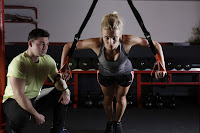Potent Plants for Athletic Performance
Potent Plants for Athletic Performance
When it comes to health, food and exercise are king. It’s no surprise, too, that the food we eat has a direct effect on our physical performance. For those looking to eke out extra performance, there’s a $149.5 billion dollar supplement industry that would love to sell you some products – but who’s to say they’ll even work? Or that they’re even safe?
But what if I told you there are foods that have been scientifically proven to be beneficial to athletes? And beyond these athletic benefits, they come packaged with a variety of healthy compounds. Here are three foods we can eat as part of a healthy diet that will help you meet your fitness goals:
Beetroot Juice
It is understood that pharmacological sodium nitrate supplementation can reduce the oxygen cost of submaximal exercise. A double-blind, placebo-controlled, crossover study of eight men aged 19-38 wanted to see if there were similar effects with inorganic nitrate in the form of beetroot juice (Bailey et al, 2009). They were split into two groups – one consuming 500mL/day of beetroot juice and another receiving the placebo. They then went through a series of exercise tests over the course of six days. Here’s what they found:
· An 8 mm Hg reduction in blood pressure in the beetroot juice group.
· The time it took to reach task failure was increased by 16%.
Blueberries
Blueberries are delicious and nutritious snack, but they’re also good for recovery! A 2011 study by McAnulty et al looked at the effects of blueberries prior to and after a 2.5 hour run. Here’s what they found:
· Increases to natural killer cell count (part of immune function that destroys diseased cells)
· Reduction in oxidative stress (which lead to muscle soreness!)
· Increases to anti-inflammatory cytokines (further reduce inflammation in the body)
Tart Cheery Juice
A 2010 study by Howatson et al was interested in investigating the effect that tart cherry juice had on recovery following a Marathon run. 20 participants were broken into a cherry juice or placebo group for 5 days before, the day of, and 2 days after their marathon run. These are the results of the cherry juice group:
· Increases to antioxidant activity (reducing muscle soreness)
· Reduced inflammation (reducing overall inflammation)
· Aided in the recovery of muscle function
-TM
Bailey, S. J., Winyard, P., Vanhatalo, A., Blackwell, J. R., Dimenna, F. J., Wilkerson, D. P., Tarr, J., Benjamin, N., & Jones, A. M. (2009). Dietary nitrate supplementation reduces the O2 cost of low-intensity exercise and enhances tolerance to high-intensity exercise in humans. Journal of applied physiology (Bethesda, Md. : 1985), 107(4), 1144–1155. https://doi.org/10.1152/japplphysiol.00722.2009
McAnulty, L. S., Nieman, D. C., Dumke, C. L., Shooter, L. A., Henson, D. A., Utter, A. C., Milne, G., & McAnulty, S. R. (2011). Effect of blueberry ingestion on natural killer cell counts, oxidative stress, and inflammation prior to and after 2.5 h of running. Applied physiology, nutrition, and metabolism = Physiologie appliquee, nutrition et metabolisme, 36(6), 976–984. https://doi.org/10.1139/h11-120
McAnulty, L. S., Nieman, D. C., Dumke, C. L., Shooter, L. A., Henson, D. A., Utter, A. C., Milne, G., & McAnulty, S. R. (2011). Effect of blueberry ingestion on natural killer cell counts, oxidative stress, and inflammation prior to and after 2.5 h of running. Applied physiology, nutrition, and metabolism = Physiologie appliquee, nutrition et metabolisme, 36(6), 976–984. https://doi.org/10.1139/h11-120


Comments
Post a Comment